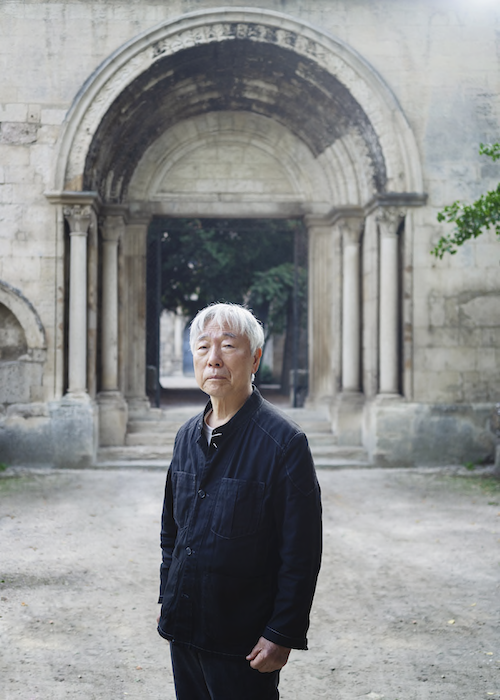Lee Ufan
Born in Kyongnam, 1936 and lives in Japan and Paris

Lee Ufan (born in 1936 in Kyongnam, South Korea) is a transnational artist, living and working between Japan and Paris.
He developed his practice in the 1960s as a founding member and pioneer of the avant-garde, Tokyo-based Mono-ha movement, a group that served as a touchstone in the development of contemporary art in Asia. Mono-ha (‘School of Things’) arose amid the collapse of colonial world orders and authoritarian protests, and served as a critique of Western notions of representation, with a collection of young artists opting to focus on the relationships between materials and perceptions rather than on intervention. Lee’s works are characteristic of this school of thought, using natural stones and pigment to enhance the experience of the materials and to represent their interconnectedness.
A crucial element of Lee’s practice is a conscious reduction, with complete focus on the essential elements – in particular the body and gesture. The artist utilizes his body performatively in the creation of each work; painting from a position above the canvas, he lies on a wooden plank placed over the surface of the work, like a bridge. As such, Lee feels he is a part of the canvas and can immerse himself within it.


Palazzo Diedo




